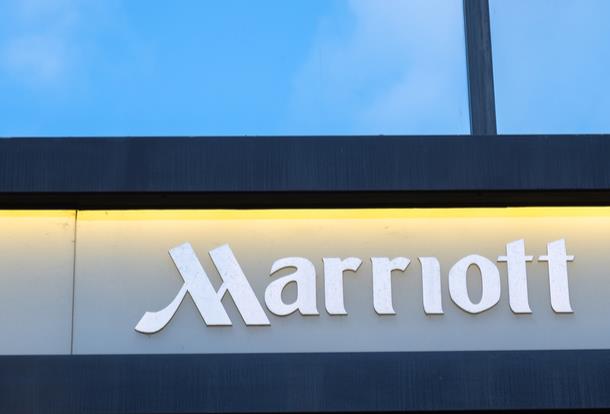This is a guest article by Aubrae Wagner, content strategist with EnVeritas Group, a global content marketing firm that creates, manages, markets and distributes content for Fortune 500 companies.
Because the travel and tourism space remains extremely competitive, it’s important for individual hotels and hotel groups to establish and maintain a competitive advantage in their marketing efforts.
One increasingly important way of doing this is to recognize what content marketing is and how to integrate it into your overall marketing efforts.
Content marketing is the active process of creating relevant and sought after content with the end goal of attracting your target market’s eye, mind and pocketbook.
Successful content marketers take the time to develop an integrated content strategy that focuses on the user experience, from market research to distribution, site copy to images and search engine rankings to measurement.
Pre-game
1. Research the reader – Know who you want to appeal to
This may seem like a given, but many times hoteliers, especially as launch time nears, find themselves pressed for time and attending to a million other details. The basic step of figuring out whom your web content addresses gets lost in the shuffle.
Before considering content for a website or social media channel, you need to go back to the basics and identify who exactly you need to and will be talking to — road warriors, occasional business guests, leisure travelers, retirees, families with kids, etc.
You then need to take that knowledge and actively generate content that appeals to the identified groups.
2. Set content marketing goals – Know why you need to reach this audience
Once you’ve determined whom your target is, it’s important to know why you are developing content for them. What is it you hope to achieve with content developed for your website, blog, and social channels?
Is it brand recognition, customer loyalty, the ability to expose your hotel to new customers and expanded demographics?
Once all stakeholders on your marketing team can clearly state the goals of your content, those players should constantly evaluate any content ideas or opportunities against the rubric of how it does or does not achieve the stated goals.
Keith Wiegold, with the Content Marketing Institute, sums up points one and two when he says:
“A key to engaging content is put the customer first, to solve her problems and answer his questions. This requires understanding their beliefs, feelings, wants and needs.”
3. Start with professionally written copy
You wouldn’t skimp on carpeting and furnishings for your hotel’s lobby, so why let an amateur craft the online image of your hotel?
Poorly written, unorganized copy will have site visitors bouncing from your site like a red rubber ball. Invest the time and money to hire a professional who can showcase your hotel.
4. Add professional photography
Perhaps the only thing worse than site content written by an amateur is photography shot by an amateur. Poorly lit, grainy photos won’t sell your property, no matter how nice it is or what a deal the price is.
5. Use professional videography and/or virtual tours
Guests want to see exactly what they are getting when they book a room online. Highlight the hotel’s exterior, public spaces, dining facilities, meeting rooms, guestrooms and bathrooms when shooting videos and developing virtual tours.
Content Marketing expert Mike Volpe predicts in 2011:
“More video… as marketers realize that live video podcasts and other video formats… can communicate a compelling message to help you get found by more prospects.”
6. Have a style guide and stick to it
A Style Guide is your site’s secret weapon. It’s the behind the scenes playbook that keeps the online image of your site and all sites within your brand consistent.
It spells out everything from font type and size to photo size and number of characters in blocks of copy. Thoughtfully develop and enforce rigorously!
7. Use words that sell
Sell the experience of staying at your hotel. Remember you are selling more than just a place to sleep. You are selling a weekend getaway or a seamless business trip.
Find words that define your brand and enliven the experience of visiting your location.
8. Tell your story
Connect all of the outstanding elements of your hotel so that they tell a story both visually and verbally. Take guests on a journey through your hotel from exterior to guest room using properly ordered photographs that hit the hotel’s highpoints.
Written content should flow seamlessly from paragraph to paragraph, page to page, setting the standards for guest expectations.
9. Be unique
Each hotel has unique features that set it apart from all the rest. Is it your exceptional customer service and freshly baked cookies? Your outstanding location? Your free shuttle service?
Your world-class restaurants? Help your guests discover what makes your hotel special.
SEO and PPC
10. Use highly searched keywords in site copy
Use professional tools to research SEO keywords potential guests use when they search for a hotel and expertly weave those keywords into site copy.
11. Provide user-centered content
Stick with content that informs and educates the reader. With all the drama going on these days surrounding companies trying to game the search engines, you’ll never go wrong with simply providing the information that appeals to your guests.
12. Don’t overload copy with keywords
Keywords are important, but they should never be manipulated or over-used. They should be integrated into the copy to assist in providing readers with the information they need to find.
13. Link building
Link building is like word of mouth. The more quality sites (not link farms) that point to you as an “expert” make your credibility increase in the eyes of the search engines. Actively work to build relationships with sites in your area that would sensibly link to you. Remember that link building is not link sharing. Link sharing does little to promote your site’s credibility.
14. Google Places
Don’t forget to enter your hotel’s information and keywords into Google Places, where listings show up before organic rankings and include a map.
Hotel Marketing Strategies reports that 20% of Google searches are location specific, and Marketing Sherpa notes that “geo-targeted advertising provides highest ROI”.
15. Balance PPC and SEO
Put time and effort into managing both PPC (pay-per-click) and SEO (search engine optimization) initiatives. Coordinate both by ensuring that staff working on each initiative coordinates approaches, keywords and timing of activities.
Educate guests
16. Hotel details
Make sure your copy has all the details guests want about location, rooms, services, in-house dining and more. If you have washers and dryers in the rooms, clearly state that on the room’s page.
If you have free coffee in the lobby, make it known. Guests research and make decisions based on amenities, so leaving something out doesn’t give the guest the full picture of what your hotel offers.
Leading SEO site Seomoz calls this definitive content.
“Definitive Content educates people so, with their expanded knowledge can engage in conversation and make informed decisions. This content is educational. People who are searching for information have already identified that they’re not comfortable making uninformed decisions.
They’re looking for ‘the answer’.”
17. Local area and transportation
The first thing most travelers want to know when arriving in a new city is where they are staying in relation to the rest of the city. Is the hotel in the northeast section of the city? The arts district? Downtown?
Help orient your guests by providing destination content about your location and providing public transportation options, including the nearest bus, train, or underground stops.
18. Local activities and events
Take time to research the hotel’s local area and include nearby attractions and activities that guests can enjoy during their free time. Be sure to include local events and remember to update events at least quarterly.
Translation and localization
19. Spend time and money on translation
Engage a professional who speaks the native language fluently in order to capture the nuances of change from English to the translated language.
20. Localize keyword research
To retain highly searched keywords in translated copy, you need to have localized keyword research included in the copy. Don’t just assume that your English keywords can be translated and still maintain high organic search rankings. They can’t.
Noted localization expert Andy Atkins-Krüger says: “[Words] cannot be translated from market to market or language to language. You must start from scratch every time with some proper research.”
Value Prospects
21. Develop appealing special offers and update them regularly
Draw in guests by putting special offer packages together that encourage them to book. For example, a Romance Package around Valentine’s Day can include room night, breakfast and carriage tour. Update seasonally.
Distribute those messages across the right channels—website, facebook, e-mail, etc.
22. Enable private groups to piggy back off your site
It’s a simple concept really, but allowing your guests to have their own, private web page hosted on your site allows them to provide that URL to their company, corporate guests, wedding guests, etc.
They’ll have an organized website for their event, meeting or party, and you’ll get the bookings.
Timeliness
23. Regularly update site copy
Search engines reward refreshed copy. Guests look for timely information. Therefore, making regular updates to your site is a must. Regularly refresh special offers, information about local attractions, events and hotel details.
Grunt Work that Matters
24. Tend to the details
Remember to attend to the “little” elements of a site that give it a polished look and feel and assist with SEO – provide Alt Tags for photos, write short photo captions for images, properly size photos and fonts and use crystal clear images.
25. Make individual hotels updates simply and quickly
Empower each hotel to easily update images, words, offers, maps, etc. Use an online message board where hotels can input updates they need made and your content management team can quickly and easily respond to those requests.
26. Check facts/maintain databases
When was the last time you checked names, phone numbers and e-mails for all your hotel staff? General managers, regional managers and sales staff often change regularly. Be sure you keep your records up to date.
This will ensure that contact information on your website is easy to update.
27. Interview your managers
No one knows the hotel better than the hotel’s general manager. Be sure to thoroughly interview the general manager of the hotel before writing site copy. Content Marketing experts agree that you should tap into the 10-15% of staff who really “get” your product. Take advantage of their depth and breadth of knowledge.
Distribution
28. Coordinate distribution of offers and information across channels
Think through all the touch points where potential guests may have contact with your hotel – website, e-mail, social media, etc. Craft and disseminate your content so that it works together to dialogue with your potential guests about your hotel.
Measurement
29. Monitor traffic and user interaction to identify hard working pages
Tap into your analytics. Make sure you understand what it is they are telling you. Look for pages that are highly trafficked and retain guests. Make more pages like these. Also look for pages that don’t perform as well, identify why and make changes to (or eliminate) these pages.
30. Test and tweak
Be willing to tweak pages and to conduct split tests to determine which pages, headlines, layouts, etc. engage with guests and those that don’t.
Expert content marketer, Joe Pulizzi of Junta42 Content Marketing, says:
“I would dare say that the single most important characteristic of successful content marketers (individuals and brands) is perseverance.”
Perseverance in monitoring, testing, tweaking and trying again.
Conclusion
When developing your content marketing strategy, be deliberate and be dedicated. Get buy-in from all stakeholders and work together as a team to ensure that
content on your hotel’s website and social media channels is fully focused on engaging and attracting guests with its robust, unique nature.
Content isn’t just an after thought to fill space around a booking engine. Rather, content is the ticket that leads users to the booking engine.
Read the full story at:http://www.tnooz.com/2011/03/30/how-to/30-content-marketing-tips-for-independent-hotels-and-hotel-groups/




